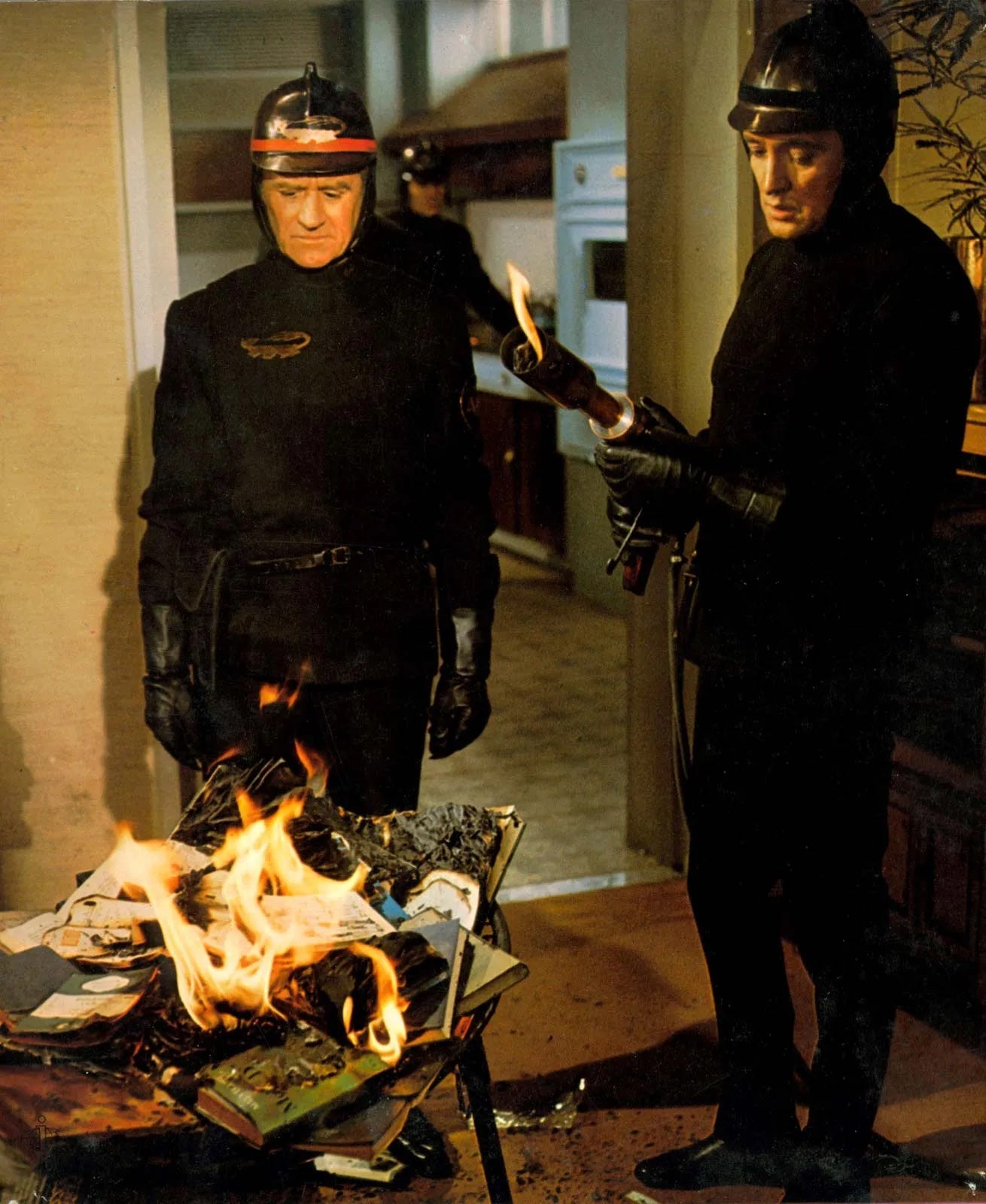Ray Bradbury's iconic novel Fahrenheit 451 and its film adaptation have captivated audiences with their chilling portrayal of a dystopian future. Within the narrative, the theme of loneliness emerges as a profound reflection of the dehumanizing consequences of an oppressive society. This essay will delve into the exploration of loneliness in both the book and movie versions of Fahrenheit 451, highlighting how the characters' isolation underscores the loss of personal connections, intellectual discourse, and the human spirit.
In both the book and the movie, the protagonist, Guy Montag, serves as a prism through which the theme of loneliness is refracted. A fireman tasked with burning books, Montag is initially part of a society that discourages critical thinking and suppresses individuality. As he embarks on a personal journey of self-discovery, Montag experiences a profound sense of isolation.
One of the primary sources of loneliness in Fahrenheit 451 is the absence of meaningful human connections. In the book, Montag's wife, Mildred, represents the epitome of this disconnect. Engulfed in a world of mindless entertainment, Mildred is emotionally distant, consumed by her television "family" and her seashell radio. This emotional void between husband and wife is echoed in the film adaptation, where Montag's wife, Linda, exhibits a similar lack of emotional depth.
Moreover, the absence of intellectual connections further exacerbates the characters' loneliness. Montag's encounters with Clarisse, a young girl who challenges his worldview, highlight the dearth of intellectual discourse in this dystopian society. Their conversations kindle a desire within Montag for meaningful connections, making him realize the superficiality and emptiness of his previous existence.
In both the book and the film, technology is portrayed as a double-edged sword, amplifying loneliness while promising connectivity. Paradoxically, the advancements in technology further isolate individuals from one another. The seashell radios and wall-sized televisions not only serve as mind-numbing distractions but also as barriers that prevent genuine human interaction.
In the book, the Mechanical Hound symbolizes the pervasive presence of technology, adding to the characters' sense of loneliness. It embodies the relentless pursuit of conformity, relentlessly hunting down those who dare to think critically. In the film, the presence of the Hound is visually amplified, representing the constant surveillance that reinforces isolation and fear.
As the story progresses, both the book and the movie depict Montag's quest for connection and the struggle against isolation. He meets an old professor named Faber, who becomes a source of guidance and companionship. Faber represents the embodiment of intellectual curiosity and humanistic values, offering Montag the hope of genuine connection.
Additionally, Montag's encounters with the "book people" further emphasize the yearning for human connection. In both versions, he discovers a group of individuals who preserve literature, finding solace in sharing their thoughts and ideas. This community, albeit underground, represents a ray of hope in a world consumed by loneliness.
Loneliness permeates the pages of Ray Bradbury's Fahrenheit 451, resonating powerfully in both the book and film adaptations. Through the experiences of the protagonist, Montag, the narrative underscores the detrimental consequences of an oppressive society that stifles intellectual discourse and human connection. The absence of meaningful relationships and the pervasiveness of technology contribute to the characters' isolation, reinforcing the underlying theme of loneliness.
Ultimately, Fahrenheit 451 serves as a cautionary tale, reminding us of the vital importance of preserving intellectual freedom and fostering genuine human connections. It urges us to question the status quo, challenge societal norms, and actively seek meaningful connections with others. Loneliness in Fahrenheit 451 serves as a stark reminder of the potential consequences of a society that prioritizes mindless conformity over individuality and intellectual growth.
As we reflect upon the echoes of loneliness within Fahrenheit 451, it is crucial to recognize the relevance of this theme in our own lives. In an increasingly digitized world, where screens often dominate our interactions, it is easy to succumb to a sense of isolation. The novel and film compel us to reevaluate the quality of our connections, encouraging us to prioritise genuine human relationships and engage in meaningful conversations that challenge our perspectives.
Hi, thank you so much for reading. Sorry it may not be up to my usual standards, having to work on my phone to write as my laptop is dead!! Fancy supporting me & buying me a coffee? That would be so awesome if you could and would help my work towards a new laptop.
Cheers 💕







Thank you! Nothing embarrassing about that, there are hundreds of books I should of read but never have. It was a pleasure to re-read it, but don’t tell anyone ok? 🤣
I’ve been thinking about this novel a lot lately in our contemporary world with omnipresent EarPods and book cancellations. Sometimes it makes me shiver. Thanks for sharing!